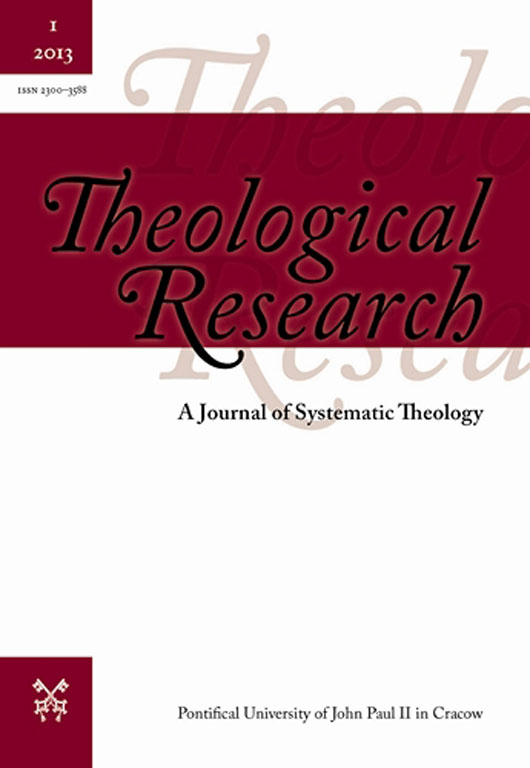The Theological Principles Underlying Augustine’s “City of God”
DOI:
https://doi.org/10.15633/thr.153Słowa kluczowe:
City of God, the two loves, civitas Dei, civitas terrena, the apologetic motives, the seven ages of the world historyAbstrakt
In his treatise the City of God Augustine intended to show that the pagans anti-Christian charges blaming the Christians for the fall of Rome were unsubstantiated and that it was in Christianity that they could find the solution to many of their own moral and religious problems. The Bishop of Hippo wanted also to equip Christians with the appropriate arguments to refute pagan charges and to make them rejoice in the plan for the Salvation of humankind. In his assessment of the true value of philosophical principles it was essential for Augustine not to renounce the authority of Christ. Augustine claims that the human race is divided into two antagonistic communities, cities, in their pursuit of their respective ‘happiness’ (civitas Dei; civitas terrena). The two loves are mutually antithetical; the love of God, which is a social love and a love of justice, which is the very opposite of self-love, is an espousal of injustice.
Pobrania
Opublikowane
Numer
Dział
Licencja
Prawa autorskie (c) 2013 Dariusz Kasprzak

Praca jest udostępniana na licencji Creative Commons Attribution-NonCommercial-NoDerivatives 3.0 Unported License.
Autrzy publikujący w czasopiśmie "Theological Research" zgadzają się na następujące zasady:
a. Autorzy przenoszą na rzecz Uniwersytetu Jana Pawła II w Krakowie (UPJPII) autorskie prawa majątkowe do swoich tekstów.
b. UPJPII udostępnia teksty na platformie wydawniczej, na licencji Creative Commons Uznanie autorstwa-Użycie niekomercyjne-Bez utworów zależnych 3.0 Polska, która umożliwia ich pobieranie i udostępnianie (np. w repozytoriach naukowych), o ile zostaną spełnione warunki:
- podany autor i tytuł tekstu,
- podane miejsce publikacji (tytuł czasopisma i adres internetowy do oryginalnie opublikowanego tekstu),
- tekst będzie dystrybuowany w sposób niekomercyjny.

